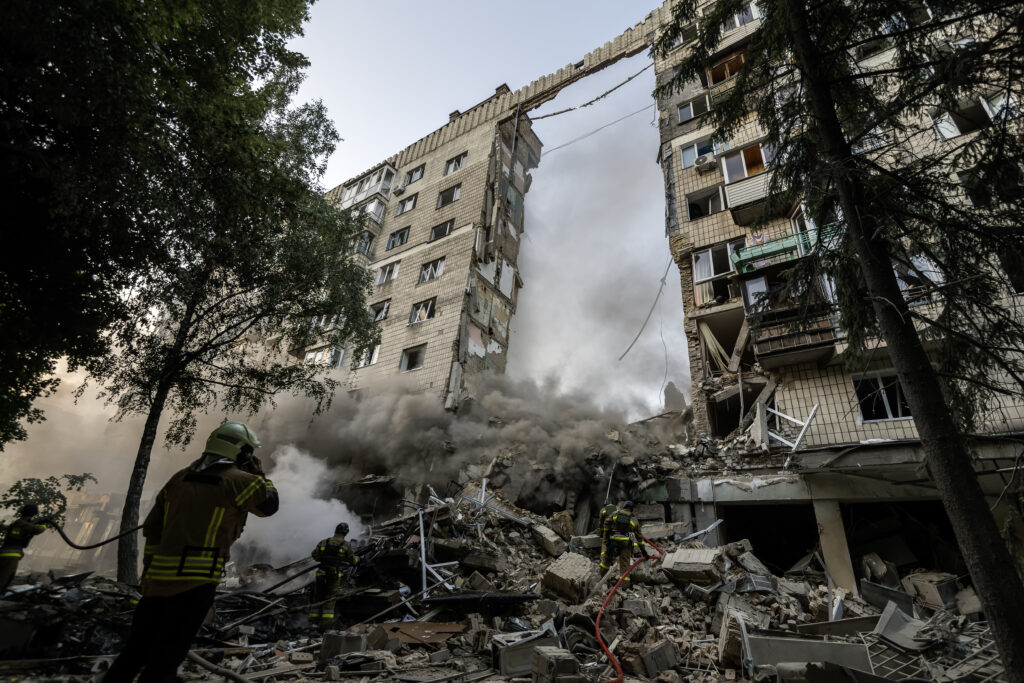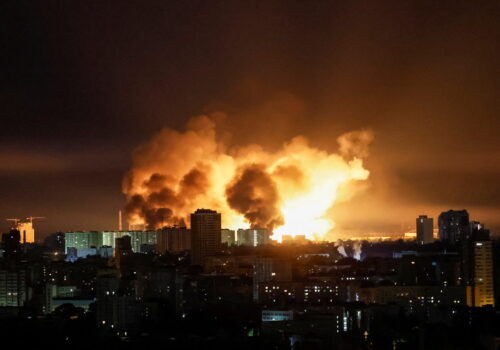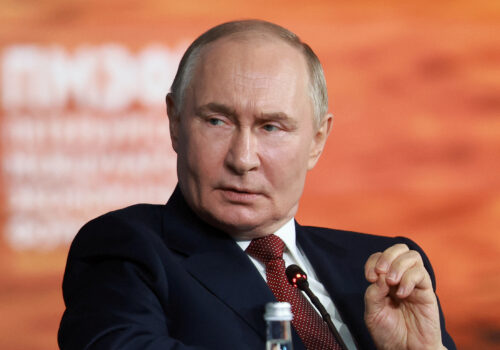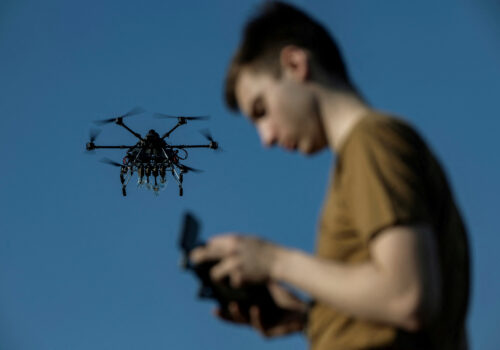Russia has responded enthusiastically to news that the United States is halting the supply of air defense interceptors and a range of other military aid intended for Ukraine. “The fewer the number of weapons that are delivered to Ukraine, the closer the end of the Special Military Operation,” stated Kremlin spokesman Dmitry Peskov on July 2, employing the official Russian government term for the invasion of Ukraine.
Peskov’s comments came following reports that the United States has ordered a pause in the shipment of some weapons categories to Ukraine amid concern about the US military’s own stockpiles. The list is thought to include 155mm artillery shells and interceptor missiles for the Patriot systems that play a central role in Ukraine’s air defenses. According to White House spokesperson Anna Kelly, the decision to halt shipments was taken “to put America’s interests first” following a US Department of Defense review.
News of the halt in desperately needed American military shipments sparked considerable alarm and dismay in Ukraine. “Any delay in supporting Ukraine’s defense capabilities would only encourage the aggressor to continue war and terror, rather than seek peace,” the Ukrainian Foreign Ministry noted in an official statement.
Others were less diplomatic as they assessed the potentially dire implications for Ukraine’s civilian population of the pause in promised US deliveries. “If Ukraine is left without sufficient air defenses, Russia will wipe out entire cities with ballistic missiles. Tens of millions will flee to Europe by winter,” warned Ukrainian anti-corruption activist Olena Halushka.
Meanwhile, Ukrainian-born Wall Street Journal chief foreign affairs correspondent Yaroslav Trofimov noted that the halt in shipments came despite Ukraine’s considerable efforts to find common ground with US President Donald Trump. “So Zelenskyy did everything Trump asked him to do, signed away mineral rights, agreed to an unconditional ceasefire, and the US still cut off previously funded weapons supplies, leaving Ukrainian cities defenseless against Russian missile strikes. A lesson to all here.”
Stay updated
As the world watches the Russian invasion of Ukraine unfold, UkraineAlert delivers the best Atlantic Council expert insight and analysis on Ukraine twice a week directly to your inbox.
By far the biggest cause for concern in Ukraine is the cut in US air defense deliveries at a time when Russia is dramatically escalating the bombardment of Ukrainian cities. In June, Russia launched a record 5438 drones against Ukraine along with large quantities of cruise missiles and ballistic missiles, Ukrainian Foreign Minister Andriy Sybiha stated on July 1. This is part of a trend that has gained momentum following the return of Trump to the White House, with Russian bombing raids more than doubling in scale since the beginning of 2025.
As Putin’s air offensive intensifies, the civilian death toll is also rising. A new report by the UN’s human rights office published on June 30 revealed a 37 percent year-on-year increase in Ukrainian civilian deaths during the period from December 2024 until the end of May 2025, with 986 people killed and 4807 injured. Many of these deaths came as a result of Russian drone and missile strikes on residential districts and other non-military targets in cities across Ukraine.
Russia’s increasingly deadly aerial attacks are fueling fears that Ukraine’s limited air defenses are in danger of being completely overwhelmed by Putin’s rapidly expanding arsenal of drones and missiles. This new US move to halt the delivery of vital interceptor missiles will now add to the sense of vulnerability in Ukraine and further undermine morale among the civilian population.
Eurasia Center events

While Ukrainians worry about being killed in their beds each night, the mood in Moscow is far more upbeat. It is easy to understand why Russian officials have welcomed this week’s news from Washington DC of a halt in American weapons deliveries. After all, ending all Western military support for Ukraine has long been a key Kremlin demand. Russian Deputy Foreign Minister Alexander Grushko went even further in mid-June, announcing that Ukraine must destroy all weapons received from the country’s Western partners as part of any future peace deal.
The Kremlin’s longstanding opposition to Western military aid is part of Moscow’s broader efforts to secure the comprehensive disarmament of Ukraine. During recent bilateral talks in Istanbul, the Russian delegation presented terms that included limits on the size of the postwar Ukrainian military and restrictions governing the categories of weapons the country would be permitted to possess. In line with the Kremlin’s conditions, Ukraine would also be barred from joining any military alliances or entering into bilateral security pacts with Western partners.
Russia’s insistence on a disarmed and defenseless Ukraine should be a massive red flag for anyone who seeks a viable settlement to end Europe’s bloodiest war since World War II. The Kremlin evidently has no intention of coexisting with a free and independent Ukraine, and is already looking to prepare the ground for the next stage in a brutal campaign to extinguish Ukrainian statehood altogether.
As Ukrainians fight for national survival, they remain heavily dependent on continued Western military support. The US decision to halt certain categories of weapons deliveries will not doom Ukraine to defeat, but it is likely to place many more lives in jeopardy. Crucially, it may also prolong the war by helping to convince Putin that he can outlast the West and achieve a decisive victory over an abandoned Ukraine.
Peter Dickinson is editor of the Atlantic Council’s UkraineAlert service.
Further reading
The views expressed in UkraineAlert are solely those of the authors and do not necessarily reflect the views of the Atlantic Council, its staff, or its supporters.

The Eurasia Center’s mission is to enhance transatlantic cooperation in promoting stability, democratic values, and prosperity in Eurasia, from Eastern Europe and Turkey in the West to the Caucasus, Russia, and Central Asia in the East.
Follow us on social media
and support our work
Image: Rescuers work at the site where a Russian ballistic missile strikes a residential apartment building in Kyiv, Ukraine, on June 17, 2025. According to preliminary reports, 15 people are killed and 114 injured. Russia launched 440 attack drones and 32 cruise and ballistic missiles across Ukraine during the strike. (Photo by Maxym Marusenko/NurPhoto)





